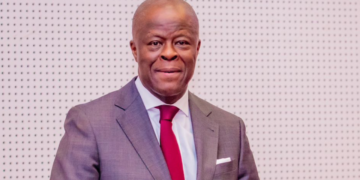Nigerians have been urged to emulate China in the preservation of indigenous languages in the country in order to avoid extinction of these languages.
The permanent secretary in the Federal Ministry of Arts, Culture and Creative Economy, Hon James Sule gave this admonition when he spoke to reporters in an interview at the sideline of the events scheduled to mark International Chinese Language Day organised by the China Cultural Centre on Saturday in Abuja.
Sule told reporters that Nigeria has about 250 ethnic groups and approximately 512 languages spoken stressing, the need to protect and revitalize these them in whatever way possible.
He said China has taken extensive steps including the establishment of language schools, cultural centres, and the integration of indigenous languages into educational curricula, which Nigerian policy makers can tap from to preserve indigenous languages.
Sule said, “Nigerian indigenous language is fast dying and we need to join all hands on deck to prevent it through sensitisation.
“We realise that the younger generation are no longer familiar with their indigenous languages so we have to have a curriculum where we teach every geopolitical zone the languages that are there.
“We must not be ashamed of our language, not just the three major languages but others too.
“Teachers can learn and teach our indigenous language to ensure that they are preserved and passed onto the next generation.”
In his remarks, the director of the China Cultural Centre in Nigeria, Mr Li Xuda, described language as a great human innovation which projects the evolution and development of human civilization.
According to the Chinese cultural ambassador, language is not just a means of communication but also a vital component of cultural identity and heritage.
He said, “For example, the China Cultural Centre in Nigeria has been teaching Chinese for over 10 years since its establishment in 2013.
“Many friends living or working in Abuja find their chances to learn Chinese here in our cultural centre.
“In my eyes, Nigeria is the cradle of African Civilization with about 250 ethnic groups and 500 languages, including Hausa, Igbo, Yoruba.
“While we celebrate ‘International Chinese Language Day’, never forget to celebrate Nigeria’s amazing languages, which are definitely important parts of world culture.
“By investing in language preservation efforts and encouraging bilingual education, Nigeria can create a more inclusive society that values and celebrates its linguistic diversity,” Li said.
The director-general of the National Gallery of Art, Mr Ahmed Sodangi in his remarks, lauded the Chinese government over its resilience in preserving its language by making it an International Day worth celebrating which is reportedly acknowledged by the United Nations.
He added that to prevent the looming threat of indigenous language extinction, the Nigerian government must adopt measures similar to China’s successful language preservation efforts.
“China’s proactive approach in safeguarding its linguistic heritage has set a precedent worth emulating, especially in a country as linguistically diverse as Nigeria.
“We can urge the Federal Government to set aside days we can celebrate the various languages across all the cultures in Nigeria.
“We should also embed it in our homes. Every parent should take responsibility in teaching children their indigenous languages and the school systems too so that our students can understand the basics.”





